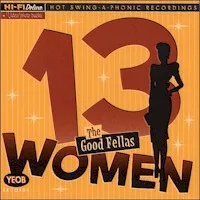Time: 41:40
Size: 95.4 MB
Styles: Vocal jazz
Year: 2000
Art: Front
[2:49] 1. I Got Rhythm
[3:11] 2. Someone To Watch Over Me
[2:40] 3. It's All Right With Me
[3:20] 4. Stormy Weather
[2:38] 5. What Is This Thing Called Love
[2:23] 6. Get Out Of Town
[3:33] 7. The Rules Of The Road
[2:39] 8. Darn That Dream
[2:38] 9. At Long Last Love
[3:13] 10. You're My Thrill
[3:16] 11. Let Me Love You
[2:48] 12. Come On Strong
[3:05] 13. Mad About The Boy
[3:19] 14. One For My Baby (And One More For The Road)
Lena Horne had three separate stays on RCA Victor Records: The first in the 1940s, the second lasting from the mid- '50s into the early '60s, and the third in the mid- '70s. During these stints, she scored only one hit single, "Love Me or Leave Me" in 1955 -- a recording not included on this compilation. In 1943, she appeared in the film Stormy Weather, and for the rest of her career that 1933 hit was identified as her signature song. Actually, she had recorded it for RCA two years before she sang it on film, and that recording is included here. Otherwise, this is a sampler of her RCA recordings stretching over the '40s, '50s, and '60s, most of them standards from the pens of George and Ira Gershwin, Cole Porter, Harold Arlen, and others. There is even one track from Horne's brief period as singer with Charlie Barnet & His Orchestra in early 1941. But the disc does not justify the title "Greatest Hits," and it is not a comprehensive collection of the highlights of Horne's RCA work. Rather, it is a discount-priced, 42-minute survey of that work that contains many excellent performances. But there's plenty more where this came from. ~William Ruhlmann
Greatest Hits




















